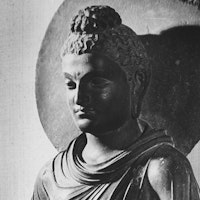As a mother protects her only child at the risk of her own life, let him cultivate a boundless heart towards all beings.
Gautama Buddha

Cultivate a Boundless Heart
Topic: Love, Compassion, & Kindness
As a mother protects her only child at the risk of her own life, let him cultivate a boundless heart towards all beings.
Gautama Buddha, also known as Siddhartha Gautama, was a spiritual teacher and the founder of Buddhism. Born in the 6th century BCE in Lumbini, now modern-day Nepal, he was destined for greatness. At the age of 29, he renounced his luxurious life as a prince and embarked on a spiritual quest to find the ultimate truth about human suffering and the nature of existence.
After years of intense meditation and self-discipline, Gautama attained enlightenment under a Bodhi tree in Bodh Gaya, India, at the age of 35. He became the Buddha, which means "the awakened one" or "the enlightened one." Gautama Buddha spent the rest of his life teaching the Four Noble Truths and the Eightfold Path, which formed the core principles of Buddhism. His teachings emphasized the importance of overcoming desire and attachment to achieve liberation from suffering. Known for his compassion and wisdom, Gautama Buddha's teachings have had a profound impact on millions of people worldwide, inspiring them to seek inner peace and spiritual enlightenment. His legacy as a spiritual leader and philosopher continues to resonate and guide individuals on their spiritual journeys to this day.
Khuddaka Patha (Metta Sutta)
Wilson, Andrew, editor. World Scripture II. Universal Peace Federation, 2011, p. 687 [Khuddaka Patha, Metta Sutta].

Gautama Buddha
Theme: Love

About Buddha’s Teaching in Khuddaka Patha, Metta Sutta [Brief Commentary]
About Buddha’s Teaching in Khuddaka Patha, Metta Sutta [Longer Commentary]
Were the Words of the Metta Sutta Spoken By the Buddha?
Related Quotes
Copyright © 2017 – 2026 LuminaryQuotes.com About Us